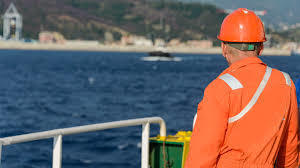ÐÎÑÑÈÉÑÊÈÉ ÏÐÎÔÅÑÑÈÎÍÀËÜÍÛÉ ÑÎÞÇ ÌÎÐßÊÎÂ
SEAFARERS' UNION OF RUSSIA
A NON-UNIONIZED SEAFARER
IS AN UNPROTECTED SEAFARER
Back
To be repatriated despite restrictions

Despite the obstacles, the ITF Inspection in St. Petersburg helped the Russian seafarer to sign off from the vessel Breeze. Other crewmembers also returned home. This example shows how the restrictions suddenly introduced in connection with the coronavirus, affect the length of stay of seafarers on board and their chances of returning home. It is noteworthy that before the ITF took up the settlement of problems with the shift, the Breeze management absolutely seriously offered the crew to prolong the contracts of imployment for additional few months. So, in the spring of this year, the crew brought the ship to China for docking. In May, the contracts of employment of many seafarers have been completed, so they asked for discharging. But in China repatriation was impossible. Then the employer asked the crewmembers to stay on board until the end of the repair, promising to change them in Singapore. During the docking period, the ship's management changed. The new operator also offered the crew to work out more under the new contract. However, the seafarers did not go for it, and one of them, a Russian citizen, appealed to the ITF inspector in St. Petersburg. As a result of the negotiations, the parties decided on a compromise solution – to organize the repatriation from Singapore, where the ship was going. But luck turned away as on May 6, the Maritime and Port Authority of Singapore (MPA) issued circulars for seaports (PMC) with updated shift requirements for crewmembers. According to them, all arriving seafarers, with the exception of those who enter the port from countries and regions with a low risk of contracting coronavirus, must undergo a 21-day home quarantine at the place of departure. This meant one thing- it would not be possible to sign off the crew in Singapore. The next real chance to repatriate appeared in Sri Lanka: in May, under the conditions of a pandemic, the country announced that it allows changing crewmembers through isolation centers (IC). From here, the Russian seafarer and several of his colleagues safely went home. «On the one hand, everything that we are seeing today is a natural response to the ongoing pandemic and the increase in the number of sick and dead people. On the other hand, crewmembers should not become victims of the shift crisis. Recognition of seafarers as key employees would help to significantly ease the situation with rotation»,- says the Seafarers Union of Russia.
Up
